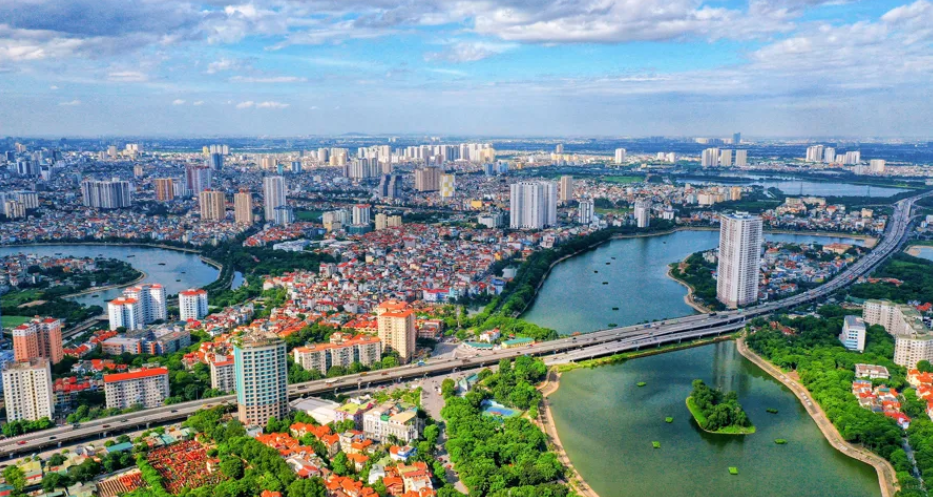Vietnam keeps 8% GDP growth target unchanged for 2025
Vietnam is expected to capitalize on opportunities to drive stronger growth amid global uncertainties, while maintaining macroeconomic stability and keeping inflation under control.
THE HANOI TIMES — The government has maintained its GDP growth target of at least 8% this year despite global and domestic macroeconomic challenges.

Part of the capital Hanoi. Photo: Pham Hung/The Hanoi Times
The goal was set out in Resolution 77 issued by the government on April 10, which highlighted that the global economy continues to face trade wars, geopolitical conflicts, and the risk of supply chain disruptions.
Domestically, agricultural production and electricity supplies are threatened by extreme weather conditions. Meanwhile, new and unpredictable internal and external factors are putting pressure on macroeconomic stability, inflation and exchange rates.
Nevertheless, the government has urged ministries, agencies, and local authorities seize opportunities, address difficulties, and work to achieve the GDP growth target of 8% or more, maintain macroeconomic stability and control inflation.
The chairpersons of the people's committees in 37 provinces and cities that failed to meet the first-quarter GDP growth targets are required to coordinate with the Ministry of Finance to identify the causes, propose solutions and adjust growth scenarios for the following quarters to ensure the annual targets are met.
Ministries and agencies are tasked with developing response scenarios to international developments, particularly with regard to the US reciprocal tariff policy. The Ministry of Finance must soon develop support measures for businesses and workers affected by the tariffs and submit a draft for the extension of the VAT reduction from July 1, 2025 to the end of 2026.
The State Bank of Vietnam is required to manage the exchange rate flexibly and intervene if necessary. It will facilitate access to credit for the manufacturing sector and provide short-term loans to businesses affected by US tariffs. It is also considering preferential loan packages for home buyers under the age of 35 and long-term credit packages for infrastructure and digital technology development.
To stimulate the economy, the government has outlined specific tasks for various ministries and sectors. The Ministry of Industry and Trade must promptly resolve issues in the implementation of Power Development Plan VIII to avoid power shortages, accelerate trade promotion, connect with new markets, finalize new FTAs, and step up bilateral negotiations with the US.
The government has called for accelerated disbursement of public investment and full disbursement of the 2025 capital plan. The Ministry of Construction has been tasked with drafting policies to stimulate domestic demand for construction materials and proposing a tax reduction on clinker, a key component of cement. The tourism sector is required to intensify promotional campaigns for the summer of 2025, and regulate air ticket prices to stimulate domestic travel demand.
To improve the business environment, the government requires effective implementation of the 2025-2026 administrative procedure reform program, especially with regard to production, business-related procedures, and decentralization of administrative processes.











